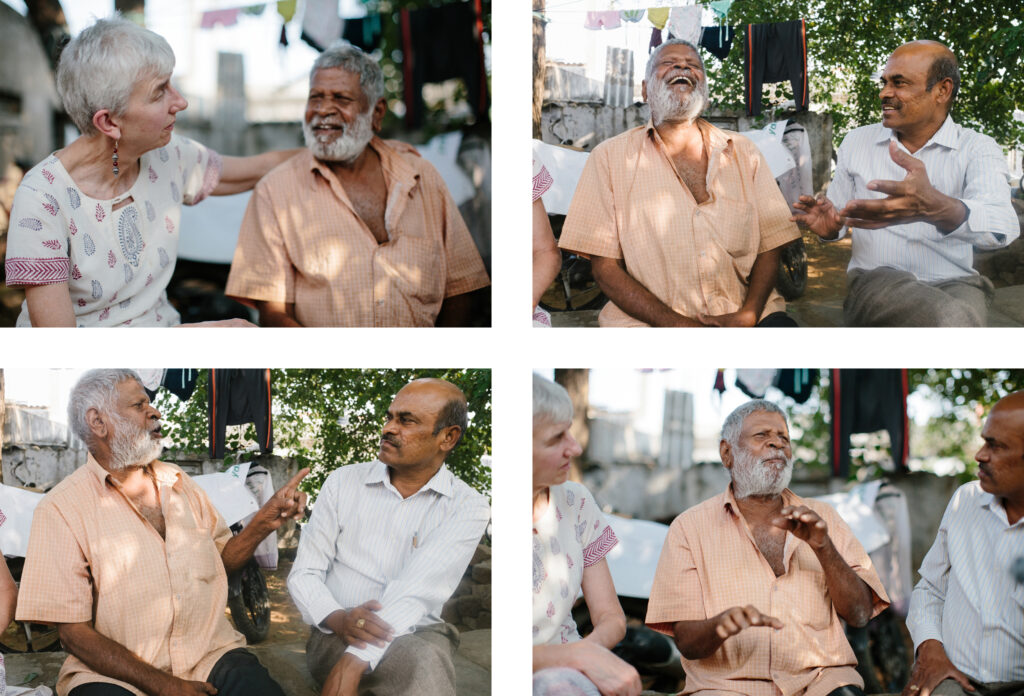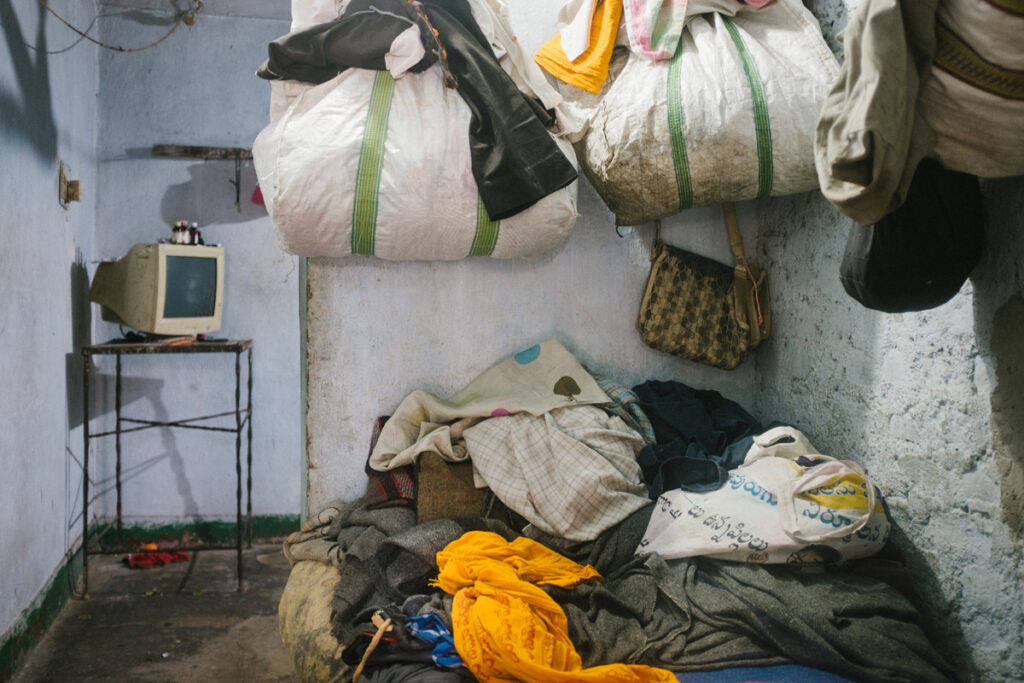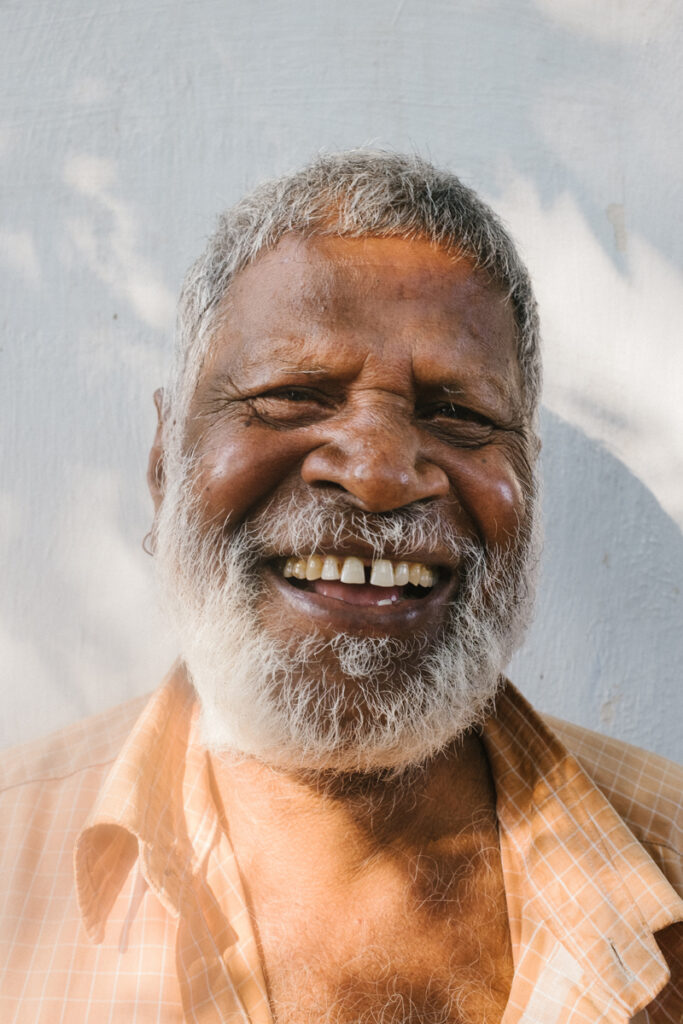
“Many people say don’t sit beside me. I am grateful you have.” Krishna’s leprosy was diagnosed when he was 12, he’d noticed patches on his skin and was diagnosed during a leprosy survey. He took Dapsone treatment and had a leprosy reaction with more skin lesions appearing.
He was working as a cow herder but no-one would buy milk from him. His mother sent him away from his village to live in a leprosy colony when he was 20, in 1965. His father also had leprosy. He took treatment for 15 years and had negative skin smears meaning that the treatment had worked. However he was left with numb hands and feet. He started begging when he moved to the colony. His sons asked him not to beg but he still does. “I enjoy being in the market and I earn 100 rupees daily.” He got married here and has 5 children, 4 of whom still see him. He has 5 homes in the area. “I felt suicidal when I was diagnosed. I still experience some stigma, and some hotels may refuse to give me food parcels. So I avoid going to hotels and using the bus, to protect myself from discrimination. However I have been able to return to my village even a few months ago. My friends help me most.”
“I would say to tell new patients to go to the referral centre and be treated. I send about 2 people per month to the referral centre. Because I live in a colony I have been protected from some stigma in working and getting married because the problems associated with leprosy are understood in the colony.”






18/11/2019
Photography by Tom Bradley, writing by Prof Diana Lockwood